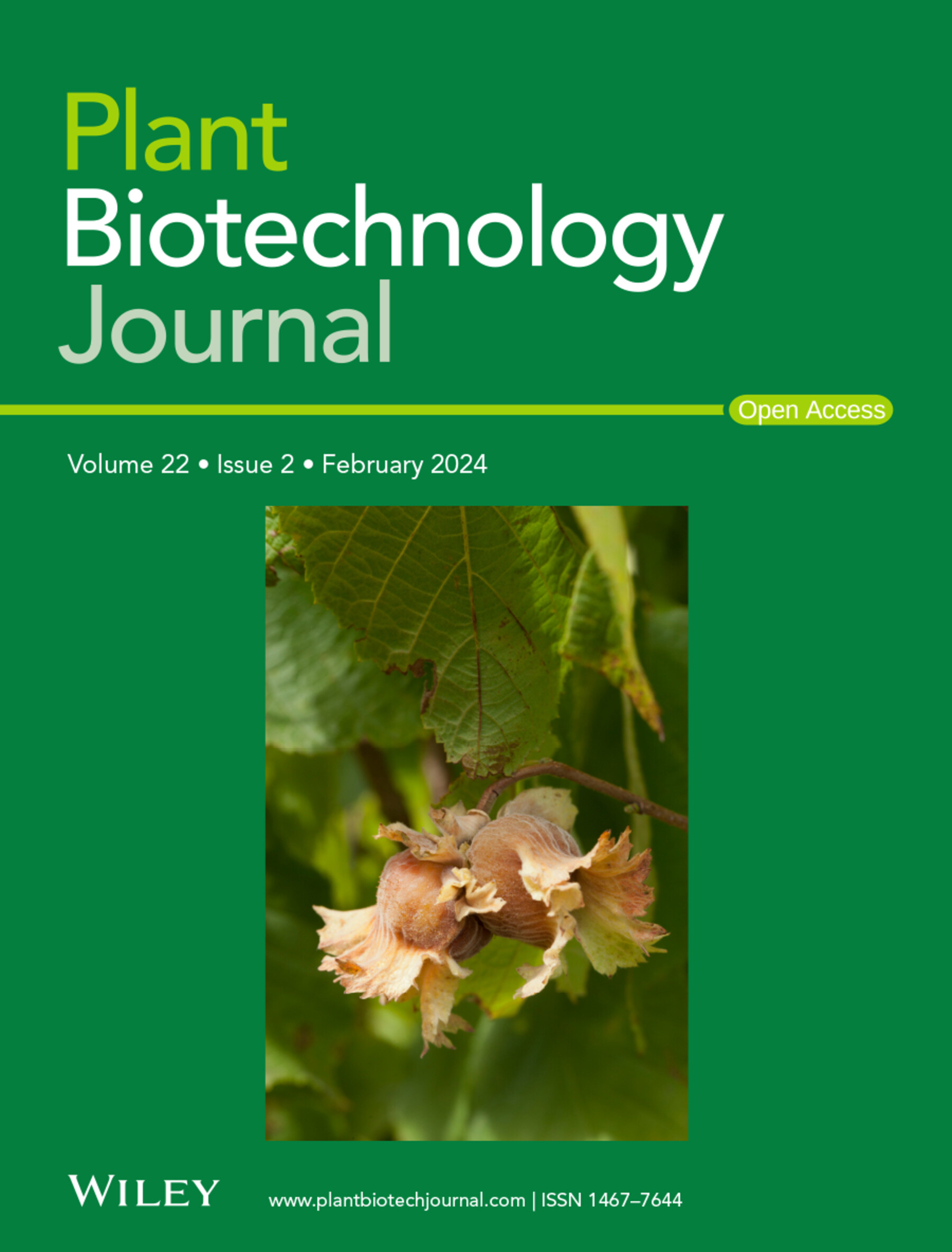Genome-Wide Association Study Reveals the Genetic Architecture and Key Drought and Yield Related Genes in Common Vetch (Vicia sativa L.).
IF 10.5
1区 生物学
Q1 BIOTECHNOLOGY & APPLIED MICROBIOLOGY
引用次数: 0
Abstract
Common vetch (Vicia sativa L.) is one of the most economically important annual pasture legumes worldwide. Many factors affect the yield of common vetch; however, the genetic architecture and gene functions associated with common vetch yield have not been explored. On the basis of 115.53 million single-nucleotide polymorphisms (SNPs) and 18.55 million insertions-deletions (InDels) identified in 222 diverse common vetch accessions, we performed a comprehensive genome-wide association study (GWAS) on the 4-year results for six yield-related agronomic traits (water loss rate, dry weight, lodging index, stem thickness, absolute height and natural height). In total, 2864 SNPs and 481 InDels were respectively identified to be significantly associated with these six traits. Furthermore, a water loss rate-related candidate gene (Vs-pyruvate decarboxylase 2 [VsPDC2]) was functionally characterised and demonstrated to be a key regulator of the water loss rate in the heterologous species Arabidopsis thaliana. This study is the first to use GWAS to investigate the genetic architecture and key regulatory genes associated with drought tolerance and yield in common vetch, thereby providing valuable insights for common vetch breeding and future research.全基因组关联研究揭示了普通野豌豆(Vicia sativa L.)的遗传结构和关键干旱与产量相关基因。
野豌豆(Vicia sativa L.)是世界上最重要的一年生牧草豆科植物之一。影响野豌豆产量的因素很多;然而,与普通野豌豆产量相关的遗传结构和基因功能尚未被探索。在222份不同种类的普通野豌豆材料中鉴定出1.1553亿个单核苷酸多态性(snp)和1855万个插入缺失(InDels)的基础上,对6个产量相关农艺性状(水分损失率、干重、倒伏指数、茎粗、绝对高度和自然高度)进行了4年的全基因组关联研究(GWAS)。共鉴定出2864个snp和481个indel与这6个性状显著相关。此外,一个失水率相关的候选基因(v -丙酮酸脱羧酶2 [VsPDC2])被功能表征,并被证明是异源物种拟南芥失水率的关键调节因子。本研究首次利用GWAS技术研究了与普通野豌豆耐旱性和产量相关的遗传结构和关键调控基因,为普通野豌豆育种和未来研究提供了有价值的见解。
本文章由计算机程序翻译,如有差异,请以英文原文为准。
求助全文
约1分钟内获得全文
求助全文
来源期刊

Plant Biotechnology Journal
生物-生物工程与应用微生物
CiteScore
20.50
自引率
2.90%
发文量
201
审稿时长
1 months
期刊介绍:
Plant Biotechnology Journal aspires to publish original research and insightful reviews of high impact, authored by prominent researchers in applied plant science. The journal places a special emphasis on molecular plant sciences and their practical applications through plant biotechnology. Our goal is to establish a platform for showcasing significant advances in the field, encompassing curiosity-driven studies with potential applications, strategic research in plant biotechnology, scientific analysis of crucial issues for the beneficial utilization of plant sciences, and assessments of the performance of plant biotechnology products in practical applications.
 求助内容:
求助内容: 应助结果提醒方式:
应助结果提醒方式:


